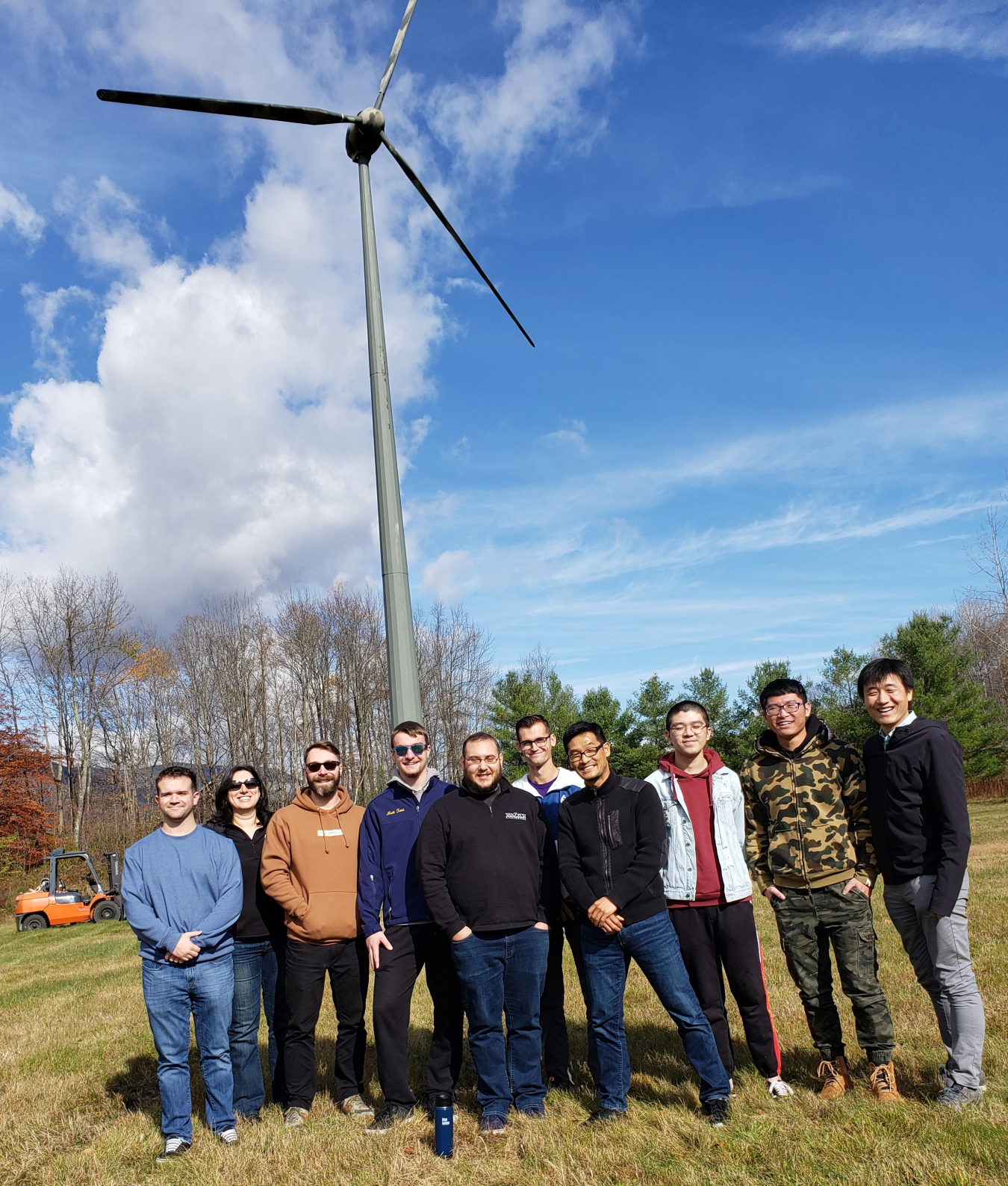University of New Haven's Wind Chargers
Team Name:
University of New Haven's Wind Chargers
University of New Haven, West Haven, Connecticut
Why this Competition?
Participation in the U.S. Department of Energy's Collegiate Wind Competition (CWC) aligns with the University of New Haven’s (UNH) mission to provide students with experiential, collaborative, and engaged learning opportunities that prepare students to lead innovation through multidisciplinary collaboration. Participants in this project will acquire the skills, experience, and perspective needed to be active contributors in the wind energy workforce.
In addition, Connecticut has a long-standing record of commitment to renewable energy. UNH’s participation in the CWC will help raise awareness in the Connecticut and New England areas of the challenges, technological developments, and innovative potential associated with wind energy.
Project Description
The Wind Chargers will design, build, and test a prototype wind turbine that will undergo performance testing such as cut-in wind speed, power curve performance, control of rated power and rated speed, durability, and safety. As part of the competition, the team will present the siting and development plans for a prospective 100-megawatt wind farm in Colorado.

University of New Haven's Wind Chargers
Game Plan
The team of 10 has subdivided into smaller teams, each focused on meeting milestones such as dynamometer, generator, wind blade, and rotor design, as well as siting and development. As a first step in project development, the team is considering factors like average wind speeds, the presence of high-voltage transmission lines, and the availability of publicly owned land in Eastern Colorado for siting its wind farm.
Team Strengths
The Wind Chargers’ core team comprises mechanical engineering, civil engineering, electrical engineering, and systems engineering majors. The multiple disciplines represented broaden the team’s perspective and allow them to efficiently tackle competition tasks by maximizing members’ broad expertise.
The Wind Chargers are leveraging UNH’s Capstone Design Program for engineering majors to prepare for the CWC and gain support and resources to help meet the CWC’s project goals. In addition, the Wind Chargers have a broad and engaged group of faculty to whom they can turn for knowledge, connections, and mentorship.
Team Hurdles
As first-time participants in the CWC, the Wind Chargers are finding that their biggest hurdle is their lack of prior experience. On the technical side, the wind tunnel on the UNH campus is too small for the Wind Chargers’ prototype, which means the team will have to find a creative way to test their model prior to the competition.
Competition Objectives
The Wind Chargers aim to develop a solid three-bladed turbine design that operates safely and efficiently. They also want to document lessons from their first competition that future teams can apply to their designs.
Follow Us
Facebook: @unewhaven
Instagram: @unewhaven
Twitter: @UNewHaven
Website: https://www.newhaven.edu/engineering/
This content was submitted to the U.S. Department of Energy by the team.

